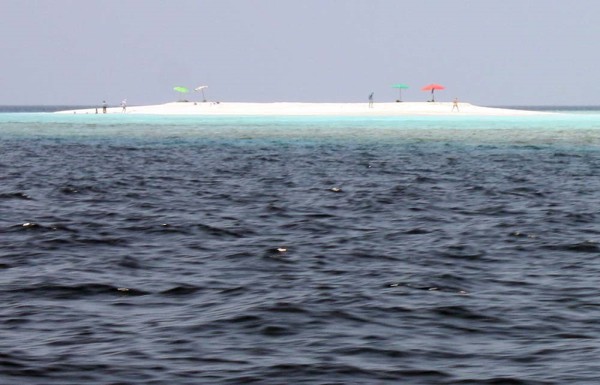The media, and even scientific publications, continue to be packed with rhetoric that low-lying islands will sink, drown, or disappear due the seas rising under climate change. One inevitable consequence, we are told, will be hordes of climate refugees fleeing their abandoned homes to descend on affluent locations.
The science suggests otherwise. Summarising current research on low-lying islands, islanders, and projected climate change impacts:
1. Low-lying islands display many responses to environmental changes. Some will disappear, through inundation and erosion. Others could grow, shift location, or not change.
2. Islands disappearing would lead to migration. Even if islands grow or shift location, living there might be difficult due to the lack of stability, potentially leading to migration.
3. In addition to sea-level rise, other projected climate change impacts threaten islanders. Examples are food and water availability and coral reef responses to ocean acidity and temperature.
4. Irrespective of climate change, and responses to climate change, many other human decisions and actions bring threats and opportunities to island communities.
5. All these factors combine to make migration decisions complex–as they always have been. People have always migrated and have always not migrated. They will continue to make such choices or be forced along certain pathways, for multiple reasons.
Despite the uncertainties, effective decision-making regarding island futures by islanders is feasible. That means that those with the power and resources need to be willing now to support islanders in determining their own futures on their own terms, rather than waiting for something to happen.
This article is based on:
Kelman, I. 2014. “No change from climate change: vulnerability and small island developing states”. The Geographical Journal, vol. 180, no. 2, pp. 120-129.
Kelman, I. 2015. “Difficult decisions: Migration from Small Island Developing States under climate change”. Earth’s Future, vol. 3, no. 4, pp. 133-142. Freely available.
Kelman, I., JC Gaillard, and J. Mercer. 2015. “Climate Change’s Role in Disaster Risk Reduction’s Future: Beyond Vulnerability and Resilience”. International Journal of Disaster Risk Science, vol. 6, no. 1, pp. 21-27. Freely available.
Ilan Kelman is a reader in Risk, Resilience and Global Health at University College London. You can follow him on Twitter @IlanKelman.
MAHB-UTS Blogs are a joint venture between the University of Technology Sydney and the Millennium Alliance for Humanity and the Biosphere. Questions should be directed to joan@mahbonline.org
MAHB Blog: https://mahb.stanford.edu/blog/islands-and-climate-change/
The views and opinions expressed through the MAHB Website are those of the contributing authors and do not necessarily reflect an official position of the MAHB. The MAHB aims to share a range of perspectives and welcomes the discussions that they prompt.
